Structured Curriculum vs. Play-Based Learning: Where's the Balance?

One of the biggest debates in homeschooling {right up there with screens vs. no screens, and schedules/routines vs. a flexible flow} is whether it’s better to follow a structured curriculum or take a more flexible, play-based approach, especially when it comes to learners 7 and younger. Many parents I talk to wrestle with the idea of striking a balance between formal learning {aka workbooks and time-tabled activities} and child-led discovery {aka following your child's lead}.

So, what’s the best approach? The short answer: It depends on your child AND you.
The long answer? It's complicated. Let's find the sweet spot.
This post explores the benefits of both - through research and real, lived experience - you'll discover how you can create a homeschool experience that hits the "sweet spot" and works perfectly for YOUR family!
The Case for Structured Curriculum
A structured curriculum can be comforting for many parents, especially those who are new to homeschooling. Having a clear...
3 Secrets for Getting Your Kids to Play Longer
Do you struggle with getting your kids to play? Particularly, staying interested and engaged in play?
A study published in The American Journal of Play, noted that last 50 years has seen a sharp decline in children’s play. (Gray, 2011) Today’s kids have the largest toy collections in history, so why is it that our kids are playing less?

Parents are becoming increasingly challenged with supporting their children’s sustained play. Busy activity schedules, increasing demands of homework, and struggles of work-life balance make it difficult for families to carve out time for sustained, unstructured play at home. The decrease in free play can also be directly related to the increase of screen time: television, video games, “educational apps” and YouTube channels lure children in with their flashy, fast-paced, instantly gratifying platforms.
While most parents understand the benefits of play, and the importance of limited screen time, they are competing against some very strong forces i...
8 Criteria for Choosing the Right Curriculum for your Kindergarten Child

How many times have you added a curriculum to your virtual shopping cart 🛒 only to second-guess your decision?
I get it!
Taking the leap into homeschooling your little one wasn't an easy decision, nor is selecting the "perfect" curriculum.
Spoiler: There is no one, "PERFECT," one-size-fits all curriculum.
However, there are certain universal criteria to help make your decision more informed and a little more grounded in educational research.
The following matrix includes a handy checklist of criteria you can use to score your curriculum contenders to ensure you're making the best possible decision for YOU and YOUR child. For each curriculum you're considering, head to the FAQ section and browse through the headings. These sections are typically where the important information can be found.
Read on for my top eight criteria for choosing the "right" curriculum for your early learner.
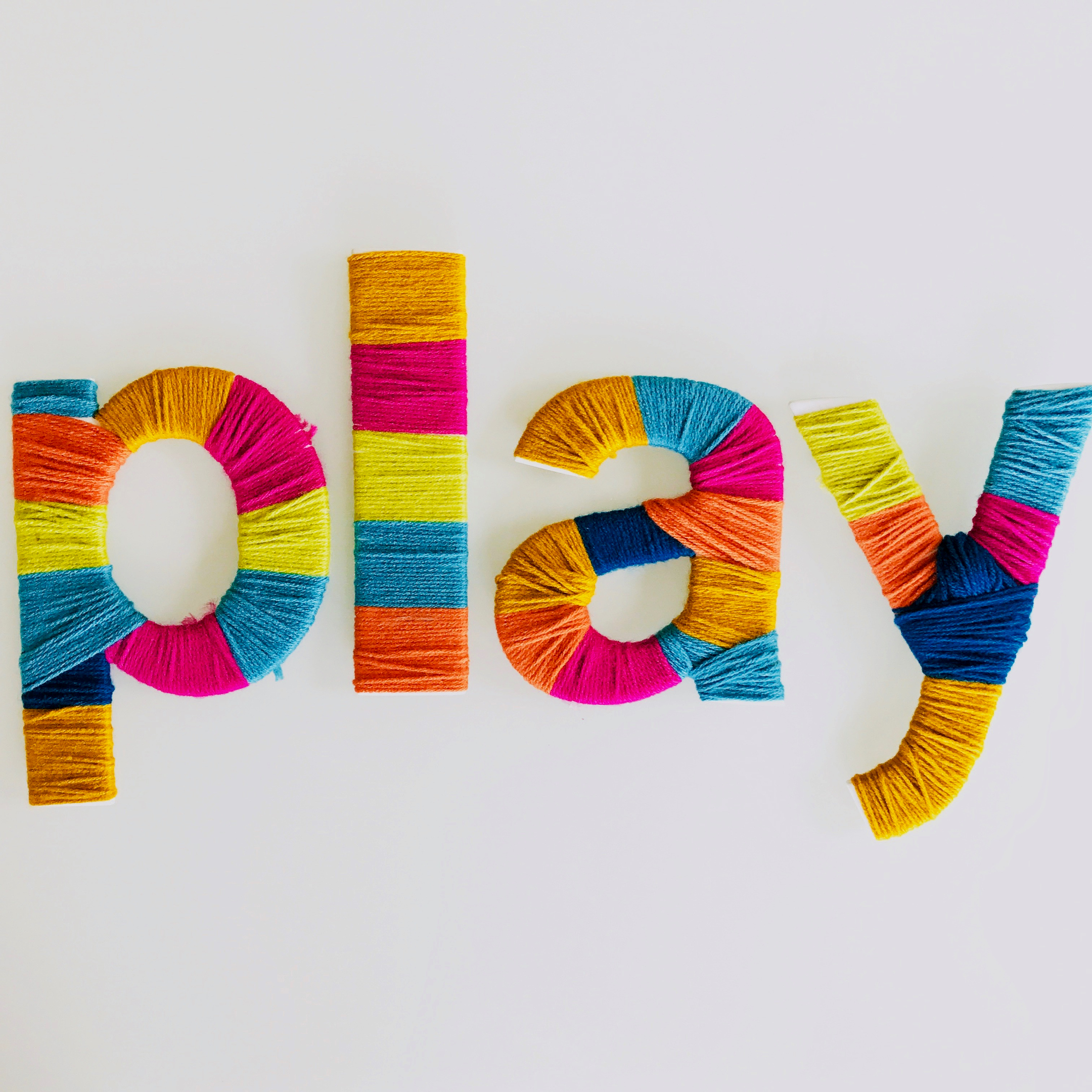
Play-focused approach
All the research points to the fact that paper-pencil worksheets are NO...
Homeschool Your Child in Under 1 Hour per Day
How can you teach your child to read, write and do math in under <1 hour per day?

The secret inside Artful Teaching. Joyful Learning.® is an integrated approach - one that folds in literacy and numeracy into everything you do. The program is rooted in a Reggio-inspired approach, and its holistic style is what makes teaching and learning so seamless, streamlined and beautiful.
This blog post and video show a typical "flow" to an ATJL homeschool day, and includes predictable, repeatable rhythms and routines to teach reading, writing and math in a way that's playful, engaging and research-based.

Morning Meeting ~ 15 minutes
Morning meeting is a practice used in most early childhood classrooms, and for good reason! It's a beautiful way to teach reading and writing in a way that doesn't require much planning or headspace. Here's how.
1. Morning Message: A daily message written to your child with a rotating bank of 5 literacy strategies. Your child "fixes" the message, using skills ...
Homeschool Morning Meeting: the Play-Based Way
Early years teachers have hosted classroom morning meetings for dozens of years. Morning meetings are an opportunity to come together, share, hear stories and connect through fun rhymes, songs, poems and chants.
How might we adapt Morning Meeting in a homeschool environment? How do we keep it fun and engaging, and keep learning intentional?
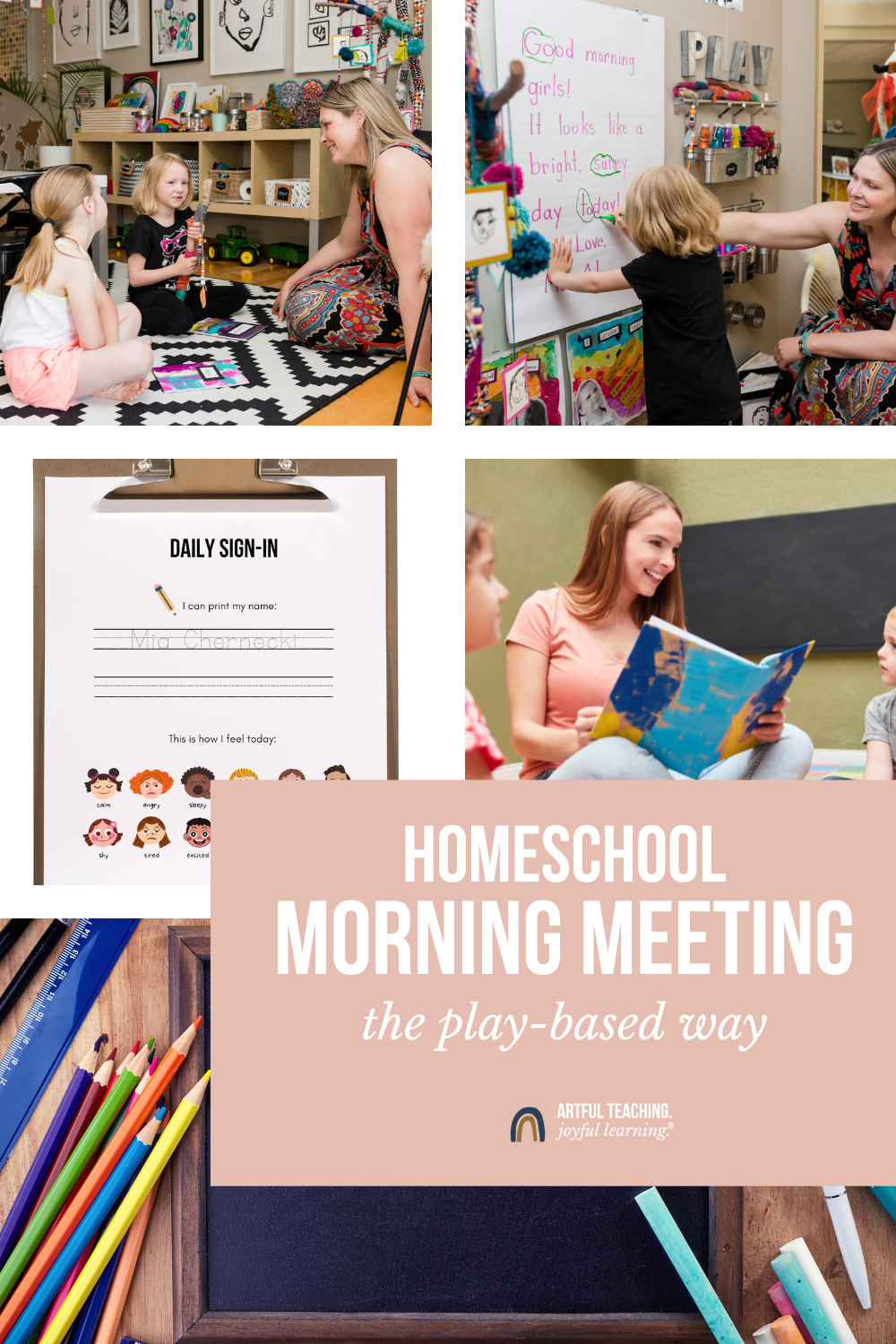
When I homeschooled our youngest, I had two other children from the neighborhood who came every other day to learn with us. Each day, we met for 15-20 minutes to explore a few rhythms. This helped to take the guesswork out of planning our days, and provided a structure and rhythm for our day that became predictable. Children do best when they can depend on a predictable schedule - their brains feel safe and optimized for learning.
1. Daily Sign In
We begin each day by signing in. I offered a template for each child to print their name, and share how they were feeling.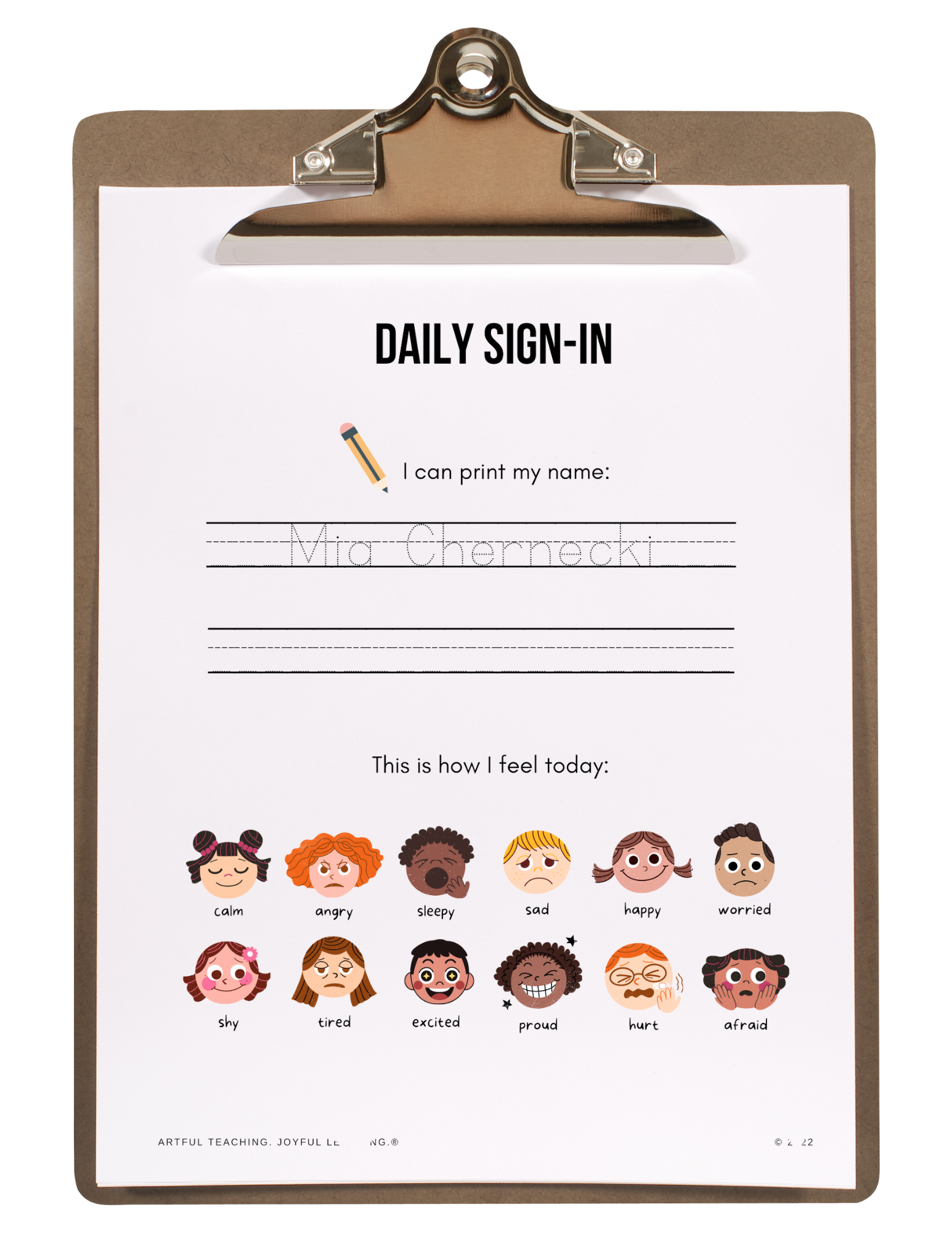
This ritual serves a few purposes:
- They are practicing printing their n...
The Problem with Copywork {and what to do instead!}
Do your kids cringe at the sound of copywork?
Copywork is a traditional practice amongst many homeschool families - especially those who follow a Charlotte Mason approach - where children copy pre-selected passages in their best handwriting. Usually, a piece of copywork is a short passage from a book, poem, verse that represents high quality literature.
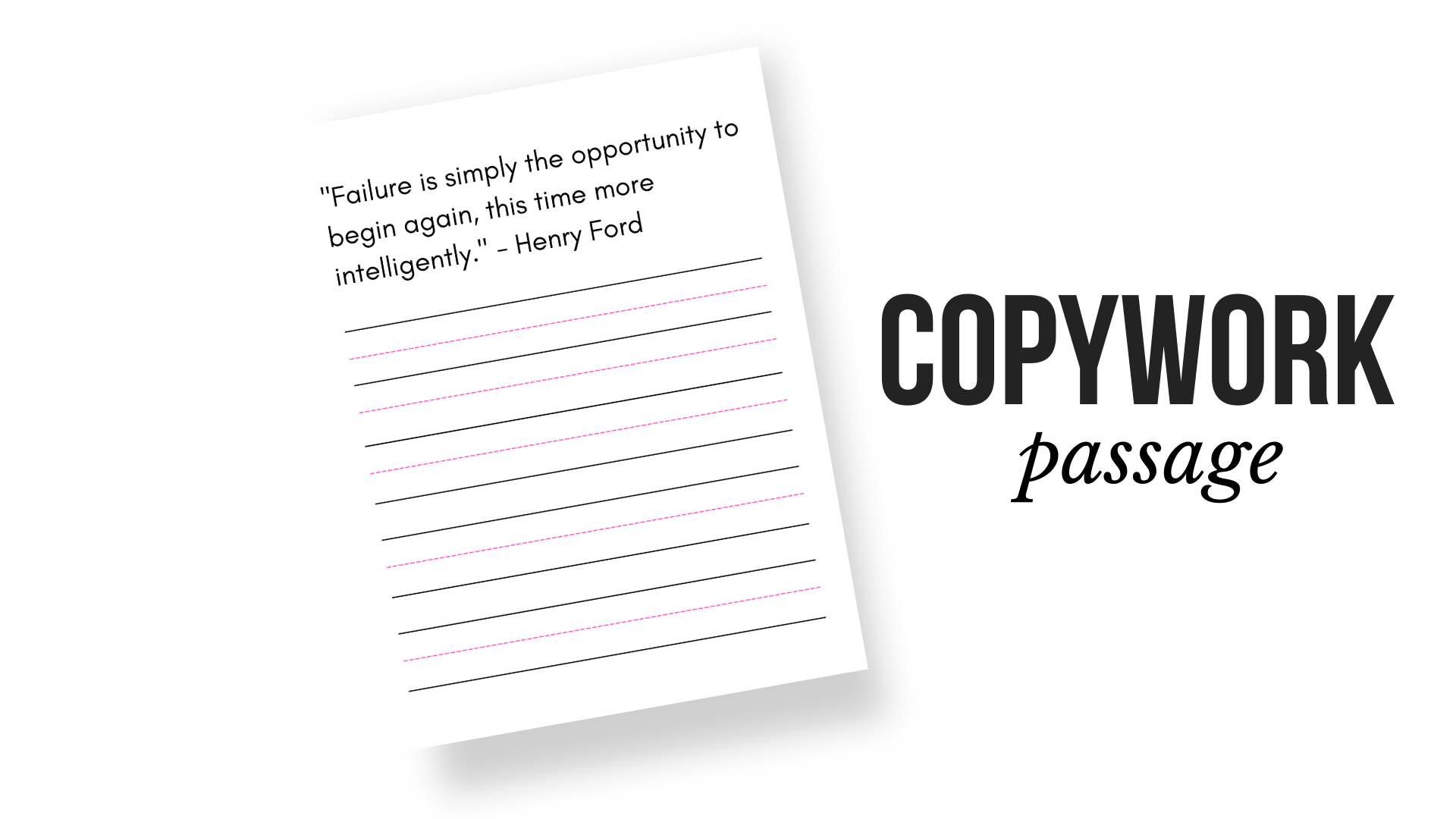
But is this best practice for children when it comes to teaching the art of writing?
Research in the field would say no.
In the olden days, children learned to write using an apprenticeship model, copying master's works. They learned trough the process of imitation.
Today, there is a great deal of evidence to support children learning to write in much more meaningful and authentic ways.
According to Cynthia Puranik of Georgia State University, there are two emerging theories about how children learn to write.
The first is cognitive-linguistic theory - teaching of discrete skills needed to write. The second is grounded in so...
Teach Kindergarten Math Without a Curriculum!
Math learning in the early years is playful, authentic and based on real-life experience.
You don’t need a curriculum! Although it’s helpful to have a scope and sequence to map out where your child is at, and to get a glance for what to expect next, learning math in the early years can and should be integrated into everyday, real-life play and learning.
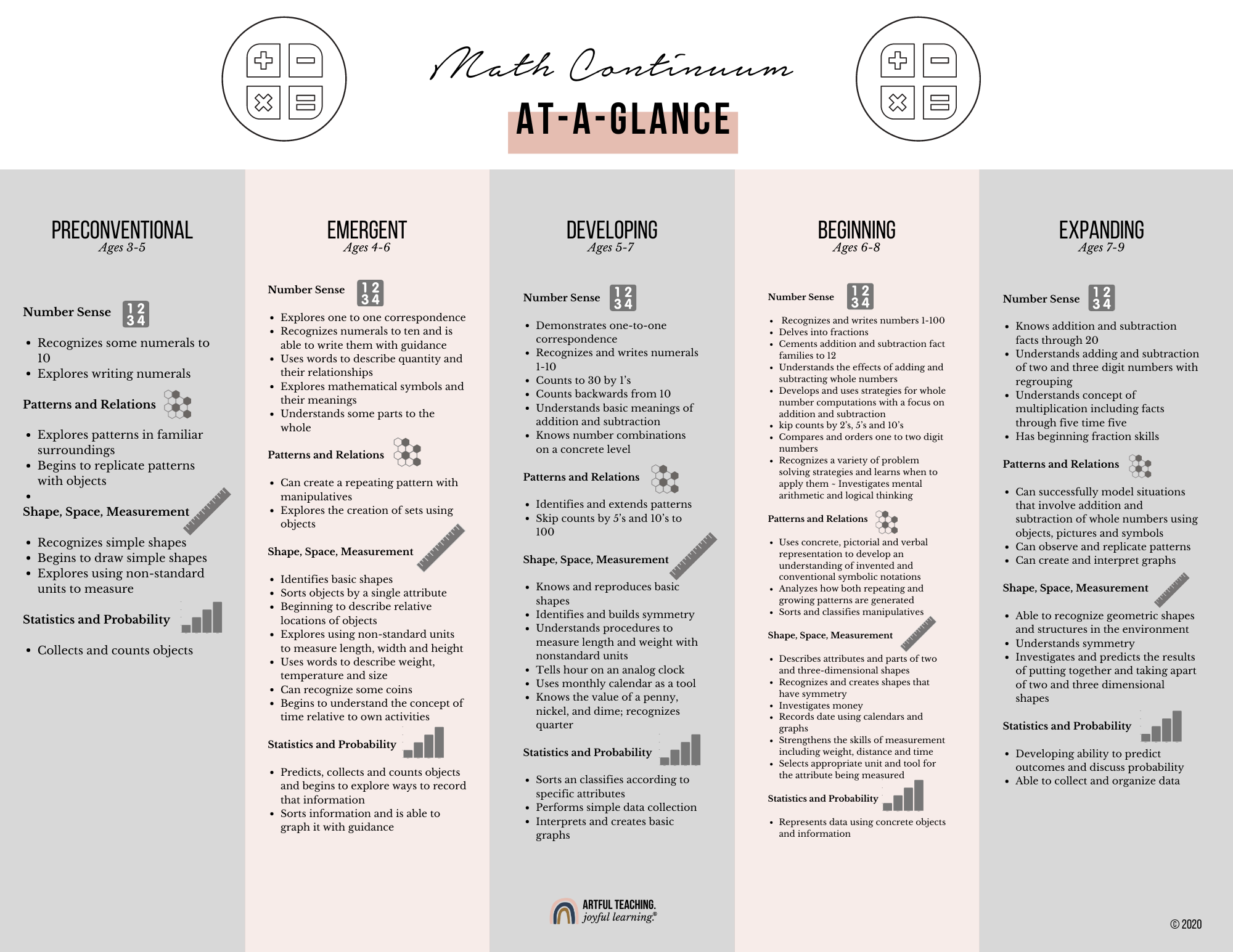
We’ve just celebrated Halloween and we have a TON of extra candy in the house.
Why not build those into playful math experiences?
Children develop as math learners, moving from real-life concrete experiences (using manipulatives and other counting objects) to pictorial representation (pictures, tally marks etc.) to symbolic understanding.
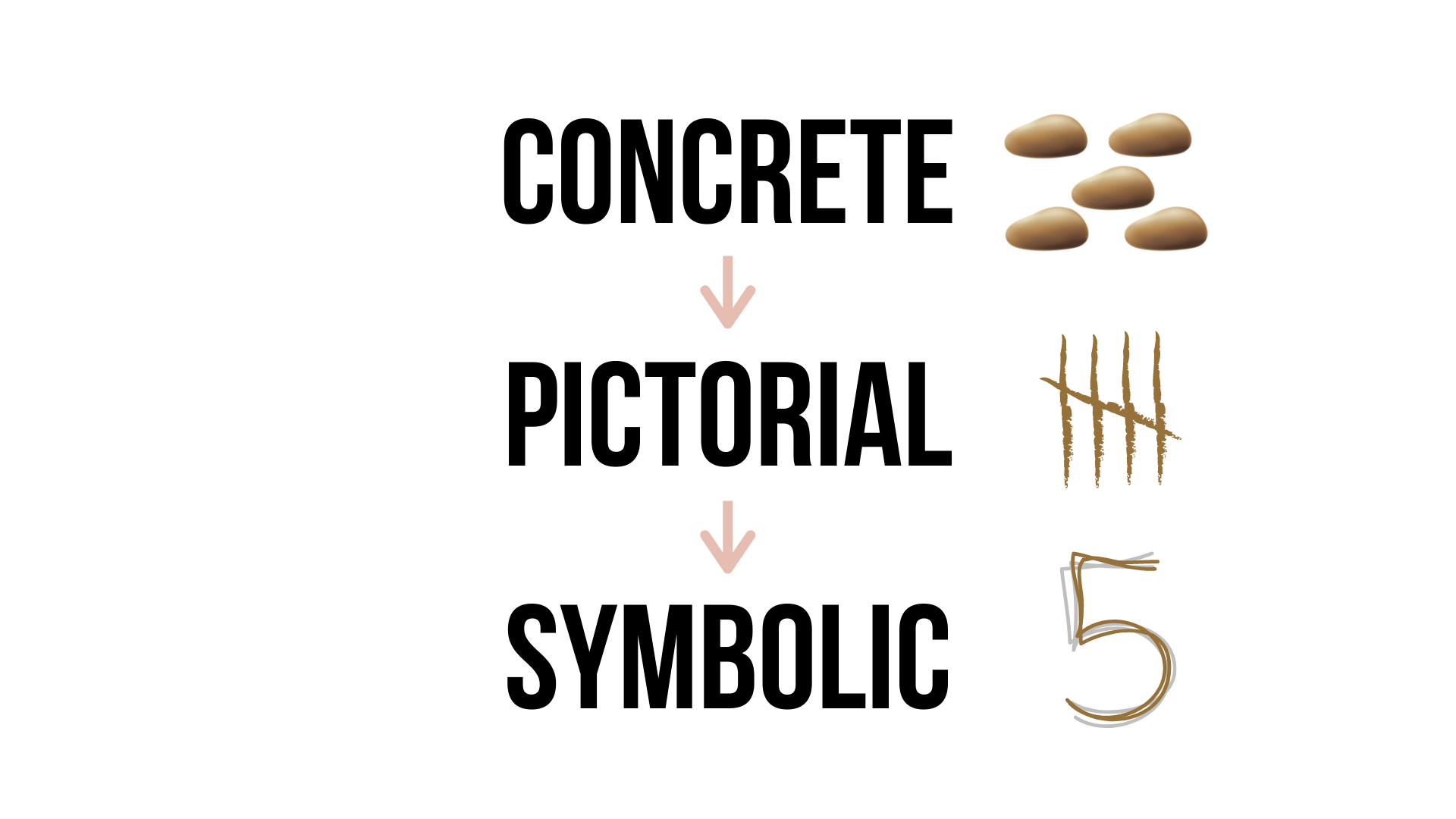
Before they can be expected to move toward symbolic representation of addition and subtraction (ie - worksheets), they need lots and lots of experience joining and separating sets. One-to-one counting, joining and partitioning form the foundation for computation like addition and subtraction...
The Biggest Predictor for Reading Success
Many homeschool parents are eager to teach their littlest children to learn to read.
But did you know there are several FOUNDATIONAL skills your child needs to master before ever picking up a book or even learning their letters and their sounds?
In this video and article, we're talking about the FUNDAMENTAL pre-cursor to teaching reading, and it has very little to do with letters, sounds or phonics. In fact, research says this skill is the SINGLE BIGGEST PREDICTOR for future reading success.
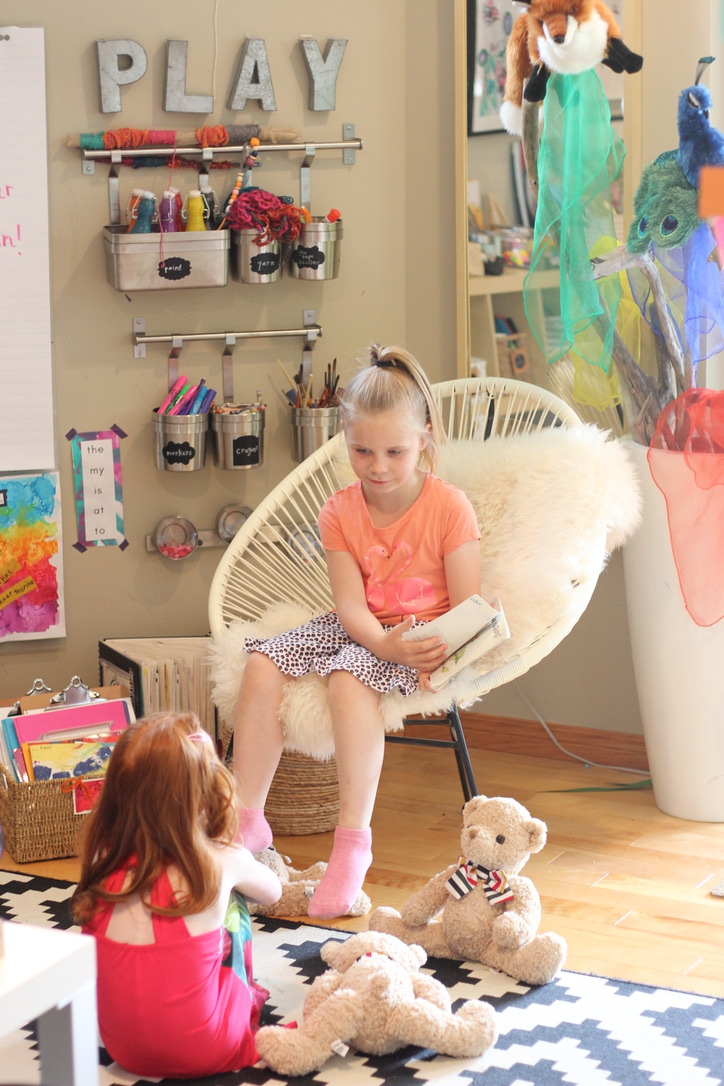
Can you guess what It is?
Phonemic awareness.
And in this article, I'm sharing five playful, prep-free ways you can build this skill every day, so that your child becomes a fluent, skilled reader.
What exactly is phonemic awareness?
At its very core, phonemic awareness is your chid’s ability to PLAY with language.
Phonemic awareness is not phonics.
Phonemic awareness is AUDITORY and does not involve letters or words in print.
It is the ability to hear, identify, and manipulate indiv...
My #TeacherCrush Blog Series Vol | 02
You know teachers who make you want to level-up your own practice?
You soak up their every word, nuance and lesson. Their students ADORE them, their administrators RAVE about them, and every parent wishes their kid was in her class?
One of those teachers is my new-found friend, Bela Luis. Her students know her as Bela, and she shares her gifts with other teachers through workshops {where I got to see her space first-hand!}, and has been invited to share her love for Land-Based Learning at a conference in Oakland, California later this year.
Being in her classroom is how I picture heaven for teachers. She takes environment as third teacher to a whole new level. I know you will find so much inspiration in this interview, and especially in the photos of her learning environment.
Folks, meet my friend Bela. A much-respected teacher from my own hometown, Winnipeg, Canada!



Please share a bit about your education: your school, major/minor(s) and
graduation year, as well as any oth...
Why I decided to start a school

From the time I can remember, I had wanted to become a teacher.
Teddy bears, Cabbage Patch Kids and Care Bears lined up in a row, seated before the giant chalkboard my dad had found at a garage sale. This was how I played every day. Even my little brother got a front row in my classroom {much to his chagrin}.

I don't know if it was my mother's influence {a well-respected teacher, now-turned-Education Consultant}, or the fact that I loved nurturing all those stuffed characters, or because I had the most amazing Nursery School teacher who was way ahead her time; but I knew with all my heart, THIS was what I was born to do.
Upon graduating from University with my Bachelor's of Education {and a major in Art}, I set about finding a job teaching Art at the Elementary level {my wheelhouse}. There was no such role at the time. High school art teachers were a plenty, but in the Early Years, where I knew I wanted to be, this was an untapped, unprecedented idea.

So, I happily accepted my...

